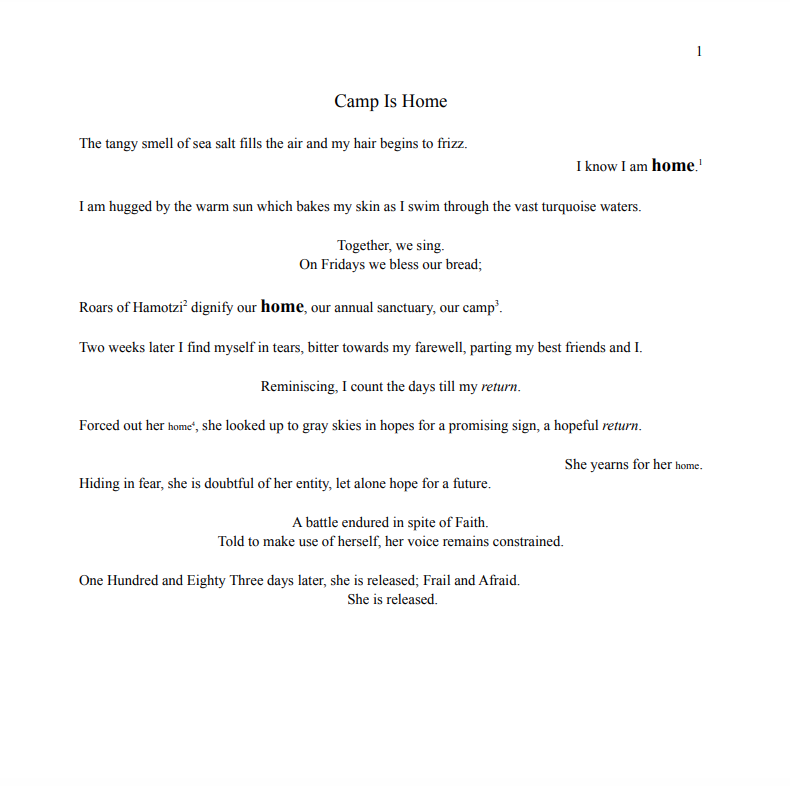A lyrical essay explores a blend of poetry, figurative language, and non-fiction storytelling. In my exploration of lyrical production, the qualities of memoir to poetry to research writing, but most importantly – narrative was captured.
Lyrical Essay

Footnotes

Intention Statement
By capturing the pain and trauma endured by Haulocaust survivor Giselle Cycowicz, I decided to juxtapose my experience at my Jewish summer camp to Cycowicz in Auschwitz. Camp Is Home begins lightheartedly, and imposes a nostalgic sense of imagery. When I think of Israel, I think of myself happiest, at Camp Kimama. On a surfboard or a paddle board floating in the medetteranian sea as my thoughts float free with my board, and my skin turns golden. I incorporate the freedom I feel when I take part in my religion, showing the significance of Shabbat, the weekly day of rest in Judaism. The tranquility is interrupted by the end of the piece in my perspective, as I complete my experience by looking towards the next time I will be back and reach this peak state of bliss. Furthermore, by changing the narrative perspective to Cycowicz’s experience, I wanted the reader to feel her longing to return to a place where she didn’t feel alienated. Although she was weak she remained to have hope, as hope was of the little control she had. The tone was intended to be bleak and tiresome for emphasis on the opposing parallelism of her camp experience to mine.
As a young Jewish woman, I feel proud of the freedom I obtain in expressing appreciation for my religion. I have robust admiration for the incredible survivors of WWII, as I know without their bravery my religion would have diminished, and forgotten.
Yom HaShoah, or Haulocaust Remembrance Day, holds extreme value to myself and Jews globally. For me, I spend each year at the local synagogue to listen, remember, and to show reverence. Despite the fact I do not personally know the majority of people filling the amphitheatre, I always feel a sense of community, a sense of intimate responsibility we each carry for those who did not survive the war, as well as to those who.
During peer review, my readers enjoyed my narrative storytelling, but suggested that I keep writing, as they knew what they saw was a rough draft. I adjusted the ending as it had barely been written and the juxtaposition was weak in order to improve the overall relation between the two very different experiences, and how they correlate.